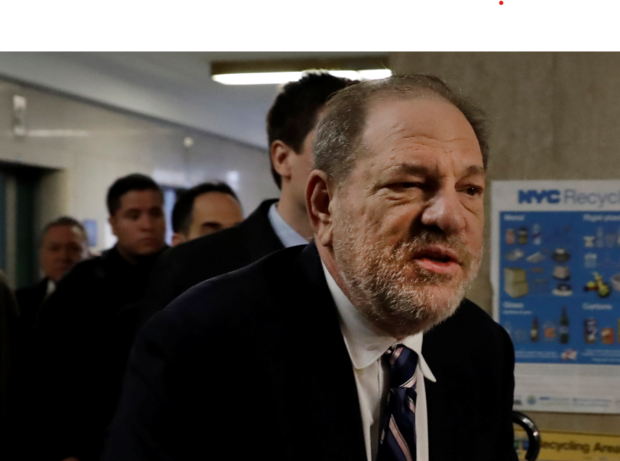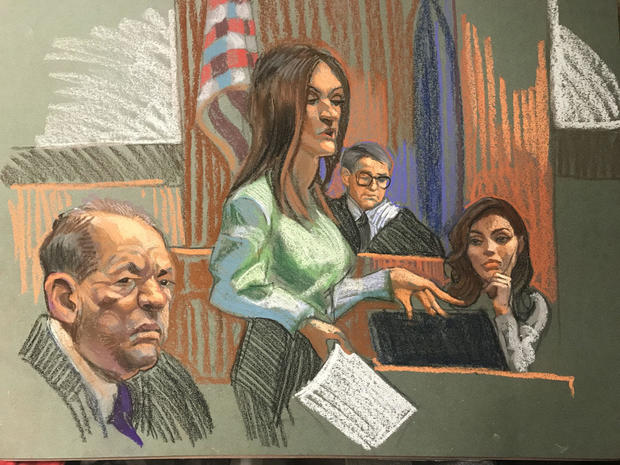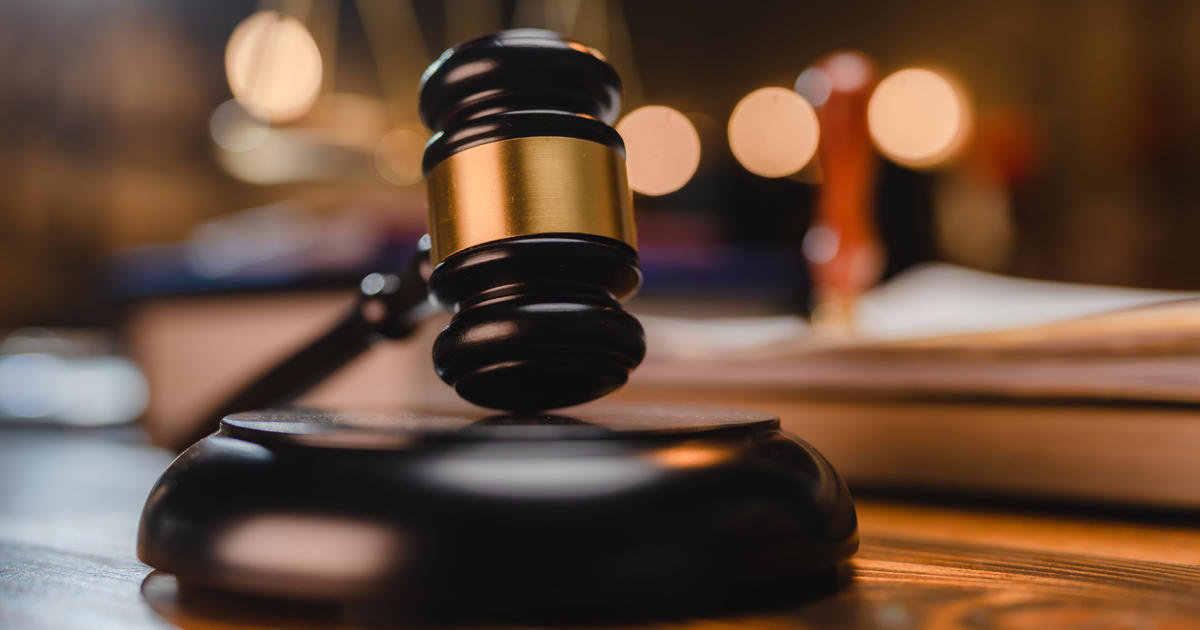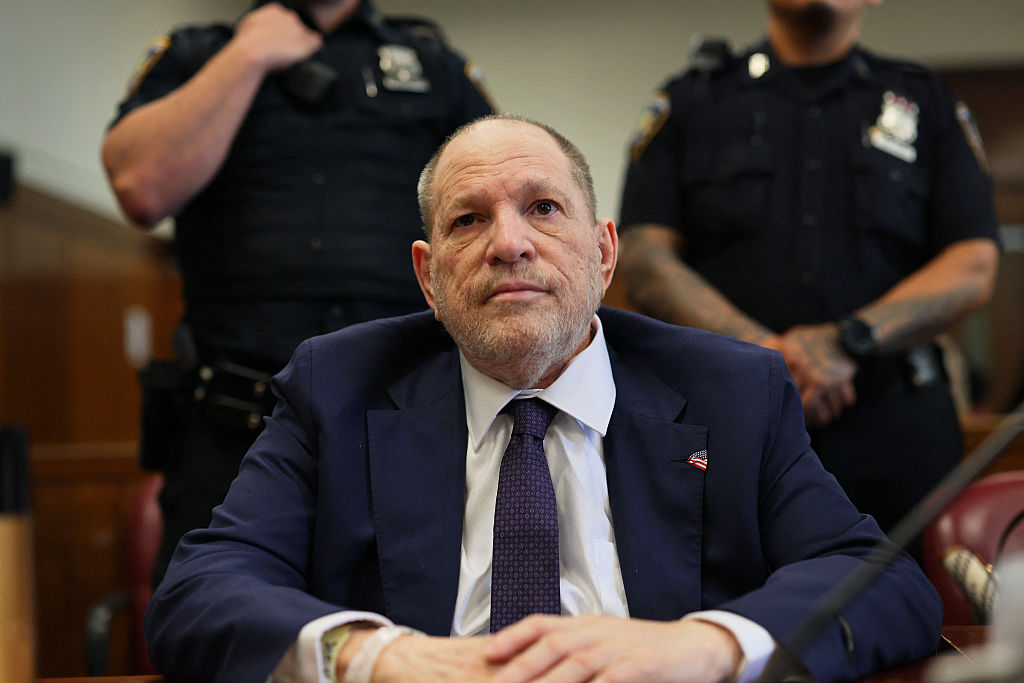In closing arguments, Weinstein defense likens prosecutors to producers "writing the script"
Harvey Weinstein's lawyer told jurors Thursday that prosecutors in the rape case against him were acting like moviemakers, creating a world where "women are not responsible" for how they interact with men. Weinstein is innocent, attorney Donna Rotunno said, appealing to jurors to ignore "outside forces" and use their "New York City common sense" in weighing a case seen as a watershed for the #MeToo movement.
Rotunno, who has taken heat from #MeToo supporters for her advocacy for the disgraced movie mogul, argued that prosecutors had to come up with a "sinister tale" about the 67-year-old disgraced producer because they don't have the evidence to prove the charges.
"The irony is that they are the producers and they are writing the script," Rotunno said. "In their universe, women are not responsible" for their behavior when they engage with men.
Rotunno faces a tricky task: convincing the jury of seven men and five women that there are too many inconsistencies and contradictions in the testimony of Weinstein's accusers, without breaking her earlier promise that jurors wouldn't hear any "victim shaming."
"You don't have to like Mr. Weinstein," she told jurors. "This is not a popularity contest."
Weinstein is charged with raping a woman in a Manhattan hotel room in 2013 and forcibly performing oral sex on a different woman in 2006. Four other accusers testified as part of a prosecution effort to show he used the same tactics to victimize many women over the years.
Weinstein, who did not testify, has maintained any sexual encounters were consensual.
Rotunno reminded jurors that if they don't believe the accounts of the two women named in the indictment — Miriam Haley and Jessica Mann — they don't need to evaluate the accounts of the other women who testified, including "Sopranos" actress Annabella Sciorra.
The jury is scheduled to hear the prosecution's closing arguments Friday before getting instructions on the law from Judge James Burke next week and starting deliberations.
Rotunno said prosecutors would likely appeal to their emotions while delivering their closing arguments, but urged jurors to steer clear of bias, prejudice, sympathy or by a desire to "avoid an unpleasant duty." She argued that prosecutors have not proved their case beyond a reasonable doubt.
"On behalf of Mr. Weinstein, we implore you to have the courage to tell them that by saying not guilty," Rotunno said.
In often emotional testimony, Weinstein's accusers said he lured them to hotels in New York and Los Angeles on the pretense of promoting their acting careers and then sexually assaulted them. The defense countered by confronting some accusers with warm emails and other communications with Weinstein that continued for months or even years after the alleged attacks.
The jury heard about emails in which Mann wrote to Weinstein afterward to accept party invitations from him, give him new phone numbers and even express gratitude. One message read: "I feel so fabulous and beautiful, thank you for everything."
Rotunno said the e-mail communications between Mann and Weinstein were so voluminous that if she described them all, Mann "would still be on the witness stand." She pointed to emails in which Mann wrote "miss you big guy" and "thank you for your unfailing support and kindness."
"Not words you say to your rapist," Rotunno said.
Speaking to reporters during a lunch break, attorney Gloria Allred — who represents several Weinstein accusers including Haley — said the defense is trying to portray Weinstein as a victim. Allred pointed to key prosecution testimony by psychiatrist Dr. Barbara Ziv, who said it's not uncommon for sexual abuse victims to maintain contact with their assailants after the attack.
Allred said the core of each accuser's story has remained consistent.
Rotunno urged jurors to discount the testimony of Sciorra, who alleges Weinstein showed up at her Manhattan apartment after dropping her off from a dinner, forced himself inside and raped her sometime in late 1993 or early 1994. Rotunno said her allegations have "nothing to do" with the criminal case against Weinstein and "defy the statute of limitations."
"Annabella is brought into this case for one reason and one reason only, one witness who has some star power," Rotunno said.
Rotunno also pointed to the testimony of defense witness Claudia Salinas, whose account she said "completely undercuts" the allegation of accuser Lauren Young. Testifying last week, Young said Salinas stood by and did nothing while Weinstein groped Young in a Beverly Hills hotel in 2013. Young claimed Salinas closed the door behind her and Weinstein as they went into the bathroom, where she said he stripped off his clothes, grabbed her breast and masturbated.
But in her own testimony this week, Salinas said that "never happened." Rotunno called Salinas "credible."
Rotunno argued that Weinstein's accusers want to be taken at their word without evidence.
"This is a criminal trial and in a criminal trial, truth matters," Rutonno said.
Rotunno delivered her closing argument less than a week after she came under fire on social media for telling The New York Times' podcast "The Daily" she'd never been attacked "because I would never put myself in that position."
In court, prosecutor Joan Illuzzi-Orbon questioned the timing of the interview and rebuked Rotunno for calling the prosecution's witnesses "liars."
"That was taped a long time ago," Rotunno interrupted, claiming that she hadn't talked to anyone in the media since the case began.
She was later contradicted by a Times spokeswoman, who told reporters the interview was recorded on Jan. 28 — five days after opening statements and the start of testimony.
-- Reporting by The Associated Press and CBS News' Cassandra Gauthier





